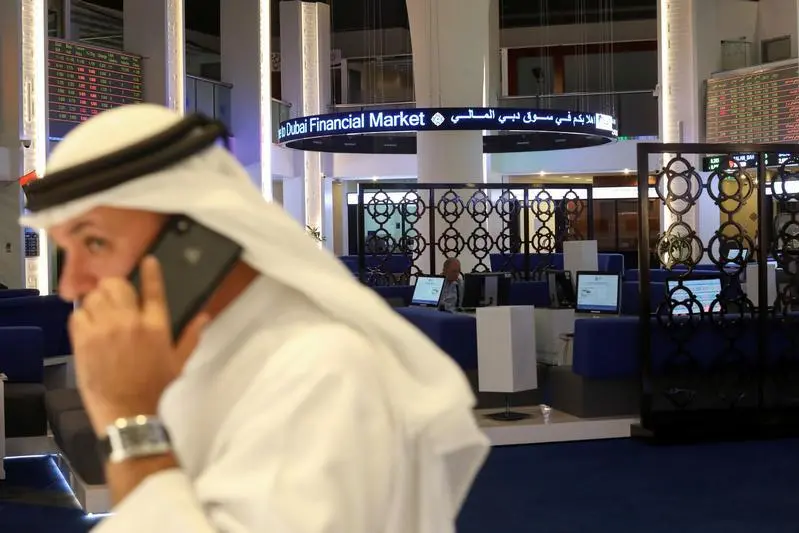PHOTO
Most Gulf bourses ended lower on Tuesday, mirroring weakened global shares and oil prices, although the bourses in the United Arab Emirates (UAE) gained ahead of long holiday weekend.
A sudden burst of risk aversion gripped most major asset markets across the globe after the head of drugmaker Moderna told the Financial Times that COVID-19 vaccines are unlikely to be as effective against the Omicron variant of the coronavirus as they have been previously.
Saudi Arabia's benchmark index lost 0.5%, with Al Rajhi Bank and petrochemical firm Saudi Basic Industries Corp both losing 2.1% each.
The Saudi index saw its first monthly loss this year.
The World Health Organization said on Monday Omicron posed a very high risk of infection surges, and several countries stepped up travel curbs. It is still unclear how severe the new variant is and whether it can resist existing vaccines.
The Qatari benchmark dropped 0.7%, weighed by a 3.4% slide in Qatar Islamic Bank and a 2.9% decline in petrochemical maker Industries Qatar .
Oil prices, a key catalyst for the Gulf's financial markets, tumbled more than 3%.
In Abu Dhabi, the index advanced 0.8%, reaching a record high, led by a 3% rise in Emirates Telecommunications Group. The index registered its seventeenth monthly gain in eighteen.
The UAE has approved Russia's Sputnik Light vaccine as a universal booster shot against COVID-19, Russian sovereign wealth fund RDIF said on Tuesday.
Dubai's main share index was up 0.4%, with top lender Emirates NBD Bank adding 3.1%.
Separately, the Dubai government is considering an initial public offering of Emirates airline, the flagship carrier's President Tim Clark said on Monday, as authorities work to boost activity on the local stock market.
The emirate's government is planning to list 10 state-backed companies on its stock exchange and set up a 2 billion dirham ($545 million) market maker fund to encourage trading activity.
Outside the Gulf, Egypt's blue-chip index rose 1.6%, ending two sessions of losses.
Egypt's M2 money supply rose by 17.58% year-on-year in October, data from the central bank showed on Tuesday.
($1 = 3.6727 UAE dirham)
(Reporting by Ateeq Shariff in Bengaluru; Editing by Shailesh Kuber) ((AteeqUr.Shariff@thomsonreuters.com; +918061822788;))





















